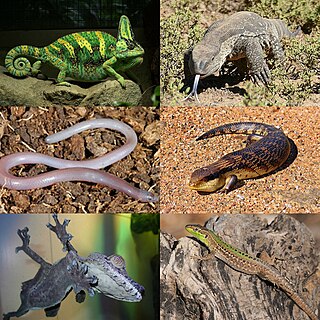Tanka is a genre of classical Japanese poetry and one of the major genres of Japanese literature.
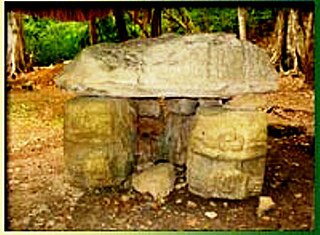
El Perú, is a pre-Columbian Maya archeological site occupied during the Preclassic and Classic cultural chronology periods. The site was the capital of a Maya city-state and is located near the banks of the San Pedro River in the Department of Petén of northern Guatemala. El Perú is 60 km (37 mi) west of Tikal.
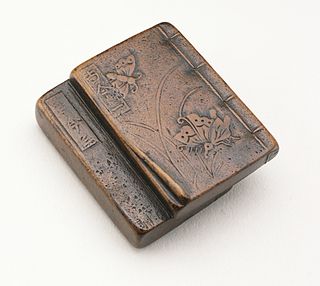
Japanese poetry is poetry of or typical of Japan, or written, spoken, or chanted in the Japanese language, which includes Old Japanese, Early Middle Japanese, Late Middle Japanese, and Modern Japanese, and some poetry in Japan which was written in the Chinese language or ryūka from the Okinawa Islands: it is possible to make a more accurate distinction between Japanese poetry written in Japan or by Japanese people in other languages versus that written in the Japanese language by speaking of Japanese-language poetry. Much of the literary record of Japanese poetry begins when Japanese poets encountered Chinese poetry during the Tang dynasty. Under the influence of the Chinese poets of this era Japanese began to compose poetry in Chinese kanshi); and, as part of this tradition, poetry in Japan tended to be intimately associated with pictorial painting, partly because of the influence of Chinese arts, and the tradition of the use of ink and brush for both writing and drawing. It took several hundred years to digest the foreign impact and make it an integral part of Japanese culture and to merge this kanshi poetry into a Japanese language literary tradition, and then later to develop the diversity of unique poetic forms of native poetry, such as waka, haikai, and other more Japanese poetic specialties. For example, in the Tale of Genji both kanshi and waka are frequently mentioned. The history of Japanese poetry goes from an early semi-historical/mythological phase, through the early Old Japanese literature inclusions, just before the Nara period, the Nara period itself, the Heian period, the Kamakura period, and so on, up through the poetically important Edo period and modern times; however, the history of poetry often is different from socio-political history.
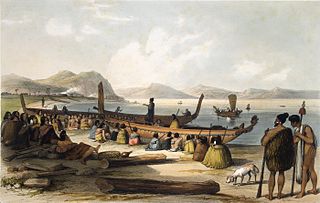
Waka are Māori watercraft, usually canoes ranging in size from small, unornamented canoes used for fishing and river travel, to large, decorated war canoes up to 40 metres long.

Juaquin James Malphurs, better known as Waka Flocka Flame, is an American rapper. Signing to 1017 Brick Squad and Warner Bros. Records in 2009, he became a mainstream artist with the release of his singles "O Let's Do It", "Hard in da Paint", and "No Hands", with the latter peaking at number 13 on the US Billboard Hot 100. His debut studio album Flockaveli was released in 2010. His second studio album Triple F Life: Friends, Fans & Family was released in 2012 and was preceded by the lead single "Round of Applause".

"Waka Waka ", called "Waka Waka " in Spanish, is a song by Colombian singer Shakira, featuring the South African band Freshlyground. It was released on 7 May 2010 by Epic Records as the official song of the 2010 FIFA World Cup, which was held in South Africa. Written, composed, and produced by Shakira and John Hill, "Waka Waka " is a pop song whose lyrics encourage one to aim for their goals like a soldier on a battlefield. The song was adapted from the Cameroonian band Golden Sounds's 1986 song "Zangaléwa." The song initially generated controversy after numerous South Africans expressed disappointment in FIFA's decision to select Shakira to sing the song, arguing that a native artist should have been assigned the role.

Flockaveli is the debut studio album by American rapper Waka Flocka Flame. The title of the album is a portmanteau of Waka Flocka Flame's name and that of the Italian political theorist Machiavelli, and was inspired by fellow American rapper Tupac Shakur, whose final stage name and pseudonym before his death was Makaveli. The album was recorded at Next Level Studios in Houston, NightBird Recording Studios in West Hollywood, and S-Line Ent. in Atlanta.
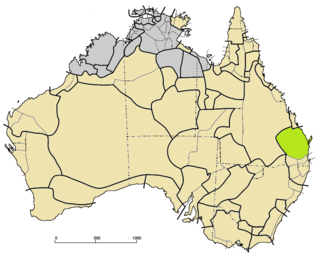
The Waka–Kabic (Waka-Gabi) languages form an extinct family of Pama–Nyungan languages of Australia. The languages were:
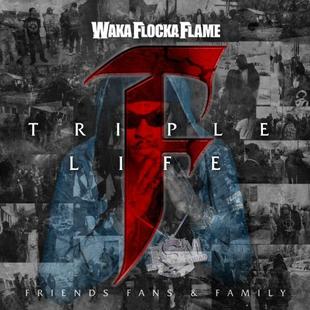
Triple F Life: Friends, Fans & Family is the second studio album by American rapper Waka Flocka Flame. It was released on June 12, 2012, by 1017 Brick Squad, Brick Squad Monopoly, Asylum Records and Warner Bros. Records. The album features guest appearances from Drake, Nicki Minaj, B.o.B, Trey Songz, Ludacris, Travis Porter and Meek Mill, while the production was handled by Waka Flocka's longtime collaborator Lex Luger, Troy Taylor and Southside, among others.

Waka is a type of poetry in classical Japanese literature. Waka are composed in Japanese, and are contrasted with poetry composed by Japanese poets in Classical Chinese, which are known as kanshi. Although waka in modern Japanese is written as 和歌, in the past it was also written as 倭歌, and a variant name is yamato-uta (大和歌).
Waka is an Adamawa language of Nigeria.

1017 Records, also known as 1017 Eskimo and 1017 Bricksquad, is an American record label founded by Gucci Mane after his departure from Mizay Entertainment and the closing of So Icey. The label is home to Lil Quill, Yung Mal, Hoodrich Pablo Juan, Ralo, and Asian Da Brat.
Te Atiawa o Te Waka-a-Māui is a Māori iwi (tribe) in the upper South Island of New Zealand. Its rohe extends from Golden Bay and Marlborough Sounds at the top of the South Island to Cape Campbell, St Arnaud and Westport.
The Jarowair are an indigenous Australian people of the Darling Downs area of Queensland.
Petracola is a genus of lizards in the family Gymnophthalmidae. The genus is endemic to Peru.
Petracola angustisoma is a species of lizard in the family Gymnophthalmidae. It is endemic to Peru.
Petracola labioocularis is a species of lizard in the family Gymnophthalmidae. It is endemic to Peru.
Petracola ventrimaculatus, the spotted lightbulb lizard, is a species of lizard in the family Gymnophthalmidae. It is endemic to Peru.
